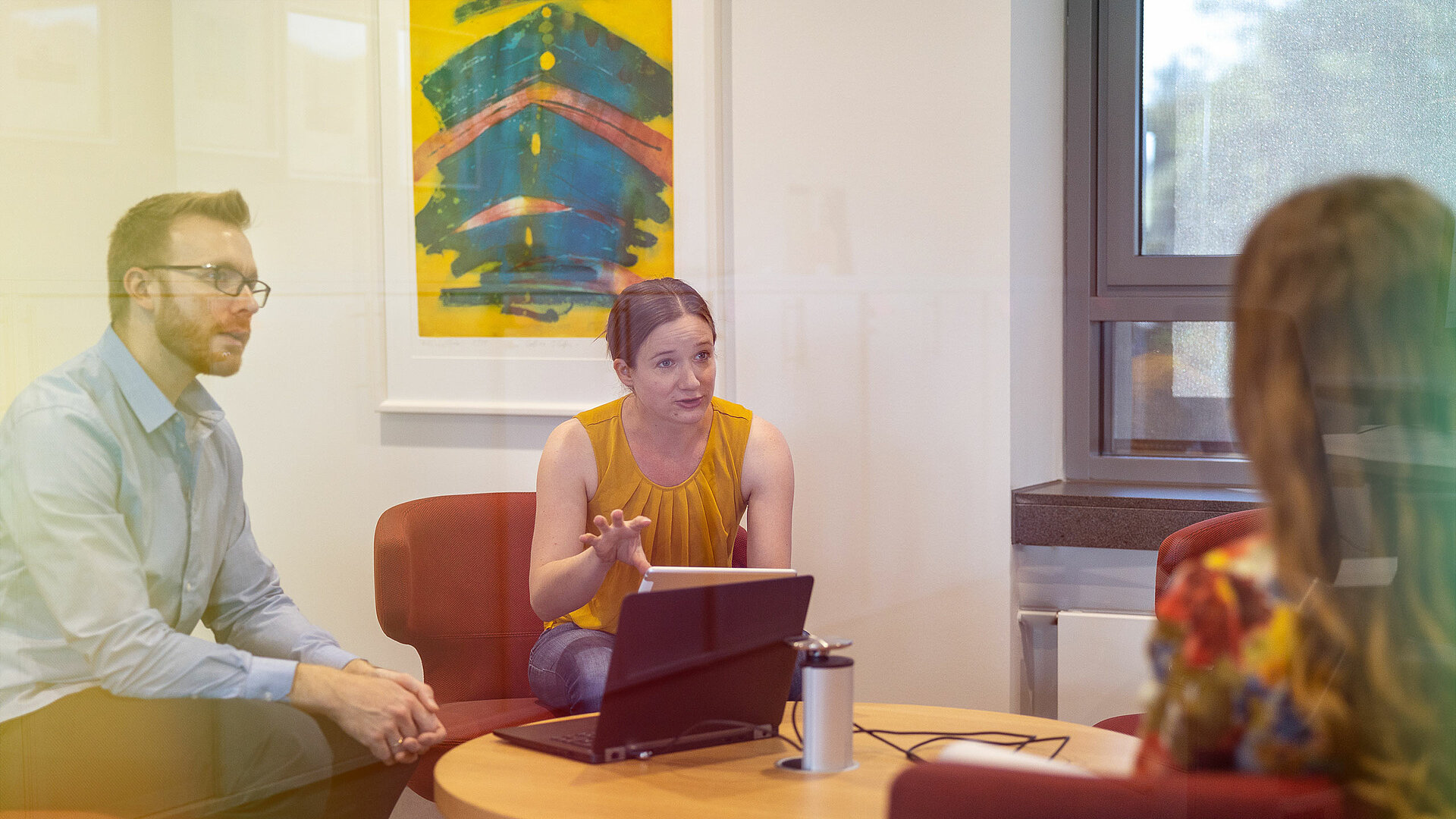
“It’s not necessary to attend each and every meeting”
Part-time or full-time – this is a question that many employees face, especially after the birth of a child. Ulrike has opted for a part-time model at ALDI DX, which also works for managerial positions.
Hello Ulrike, tell us a little about yourself – you have been with the company for quite a while now.
Ulrike: Yes, for 14 years. At that time I applied for a job as a business IT specialist and at first I didn’t even know that it was for ALDI SÜD.
You don’t seem to regret it – what are your current tasks?
Ulrike: I work as an IT Manager in the Logistics Platform. My team is responsible for all logistics applications and equipment worldwide. In addition, I act as the contact person for various topics, such as recruiting working students and graduates or the introduction of ITIL in my division of the company. In addition, I also work as a project manager for an IT logistics project.
What does this mean exactly?
Ulrike: We are conducting many projects at international and national level at the same time in order to further develop our distribution centres (using new or different technologies). Our task is to ensure that all of these concurrent projects will also function together in the end.
Let’s get down to business: The special thing about your case is that you part-time as a Manager. What is the difference to full-time?
Ulrike: I don’t see any difference in my leadership activities, even though I work part-time. It requires a bit of getting used to for employees and superiors alike that you’re not “always” available. But if we’re honest, no one is always available – not even when working full-time.
How do you organise yourself and your work?
Ulrike: Currently, I’m working part-time while being on parental leave, so I work 30 hours a week. And of course, this always requires a certain amount of planning. That is why I have fixed, regular appointments with my employees, colleagues and superiors. Afternoon appointments after 3pm and last-minute discussions as well as communication with my US colleagues are a greater challenge, as I have to pick up my children on time. You also have to learn that you cannot and need not attend each and every appointment.
Does that work?
Ulrike: Yes, of course. I just think a lot more about whether I really have to attend an appointment, because if I do so, I won’t have enough time for processing e-mails, documents and other tasks. All in all, I would say that prioritisation is very important for all managerial staff. But this is regardless of the number of hours you work.
And does ALDI DX provide you with the required level of flexibility?
Ulrike: Since the coronavirus pandemic, a lot has changed here. Until this pandemic, I preferred to work in the office, whereas many of my employees already worked remotely on two to three days a week. This flexibility and the functioning work equipment are very important to me, even though mobile working has meanwhile become standard. However, I also remember times when I couldn’t do anything from home or when I could only work offline. It is very pleasant to be able to work remotely, for example from home, and in this respect, a lot has changed within ALDI IT, which I appreciate very much.
Thank you, Ulrike, and all the best!

